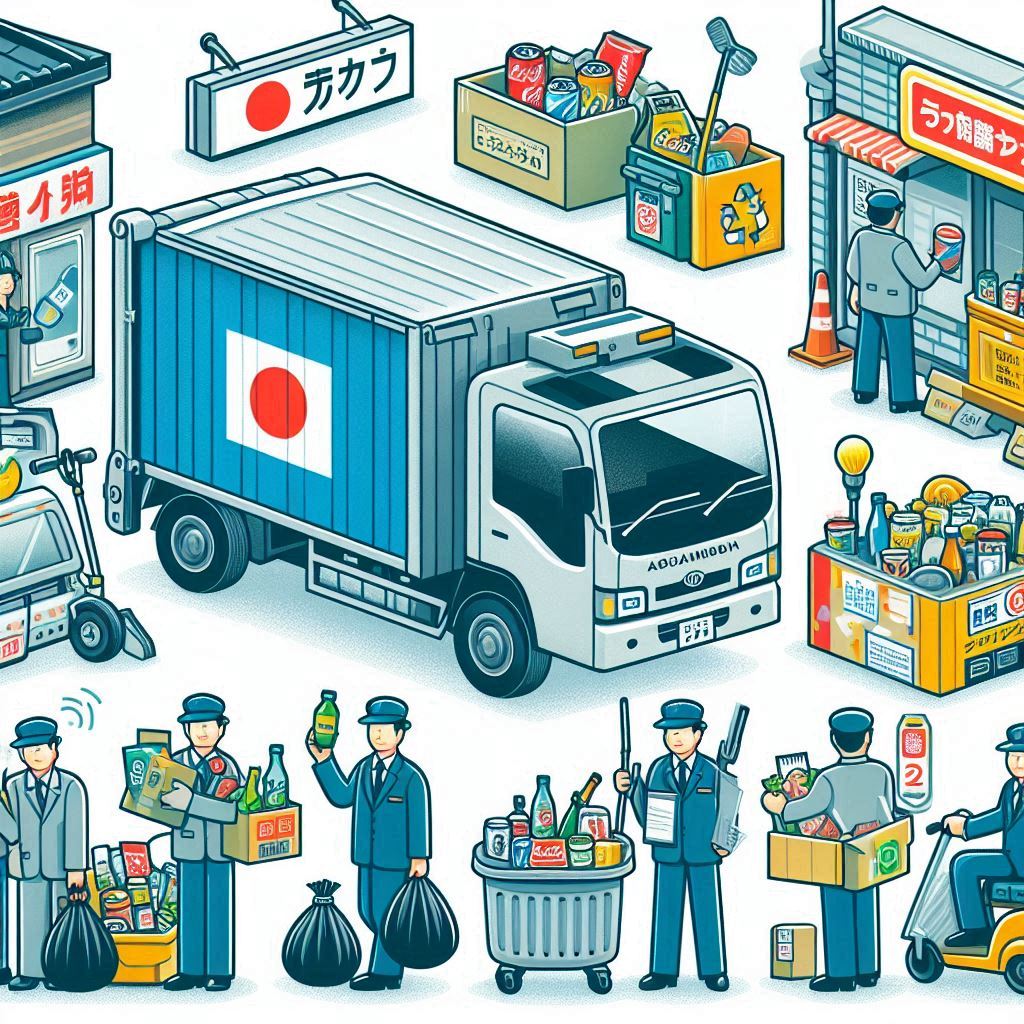In Japan, the value of a property extends far beyond its location, square footage, or price tag.
Here, quality of life is intrinsically tied to the quality of time — and nowhere is this more evident than in the nation’s impeccably executed waste collection and home delivery systems.
These services, part of Japan’s highly refined urban infrastructure, operate at a level of precision and reliability rarely seen elsewhere in the world.
This is where true asset value lies: in an environment where time is preserved, routines are predictable, and life unfolds with uninterrupted flow.
◆ A Civic Infrastructure That Protects Your Time
In Japan’s major cities — Tokyo, Osaka, Kyoto, and beyond — time is treated as a premium resource, safeguarded by an exceptionally efficient civic infrastructure.
- Waste is collected on strictly designated days and times, with near-perfect adherence and reliability.
- Once placed correctly at the designated location, residents are not required to monitor the process — it simply works.
- Courier services offer delivery windows narrowed to a single hour, and they consistently meet this precision.
- In cases of absence, secure parcel lockers ensure smooth and safe delivery, without any disruption to your schedule.
This creates a rare urban experience: a city where daily life operates with seamless efficiency. Simply by living here, time is preserved.

◆ Waste Management as a Direct Contributor to Clean Streets and Real Estate Value
- Each household receives a comprehensive waste separation guide, enabling high recycling rates and eco-friendly practices.
- The absence of litter and unpleasant odors helps maintain a refined visual and atmospheric quality across residential areas.
- In well-managed condominium buildings, 24-hour waste disposal facilities are often available.
This leads to a virtuous cycle: clean streets enhance neighborhood appeal, protect the area’s reputation, and sustain long-term real estate value.
◆ Delivery system: The Ultimate Convenience Without Leaving Home
- Groceries, daily necessities, and even prescription medications are reliably delivered to the doorstep.
- Redelivery is free of charge, and time slots can be easily adjusted via LINE or app-based services.
- Most luxury residences come standard with secure parcel lockers, dramatically reducing theft risk.
- Even unattended doorstep deliveries are virtually problem-free, thanks to Japan’s culture of mutual trust.
This seamless convenience — often taken for granted by locals — is highly valued by senior residents, expatriates, and busy high-net-worth individuals as the ultimate framework for low-effort, high-quality living.
◆ How Does Japan Compare to Global Cities Like Bangkok and Hong Kong?
- In Thailand, waste collection rules and schedules differ from district to district and are often inconsistent.
- In Hong Kong, trash bags frequently pile up on the streets, leading to issues with odor and pests.
- While courier services in both cities are rapidly evolving, they still fall short of Japan’s precision and reliability — particularly in time-specific delivery and secure unattended drop-offs.
These contrasts highlight a core truth: in Japan, simply living day to day involves significantly less stress.

◆ For the Affluent, a Life Where Time Is Respected Is the Ultimate Luxury
From a wealth preservation perspective, few things are more valuable than a lifestyle that safeguards time and mental clarity.
- Freedom from the burden of waste management
- Uninterrupted living: no repeated delays from missed deliveries
- A clean, calm, and predictably structured daily rhythm
These seemingly simple elements form the foundation of what can only be described as a quietly efficient life of luxury — a standard of living that cannot be quantified by price alone.
◆ A City That Doesn’t Waste Your Time Is the Ultimate Luxury
Japanese cities are meticulously designed around one core principle: respect for time.
This invisible convenience reduces daily stress, elevating the long-term value of real estate itself.
When affluent individuals choose urban properties in Japan, it’s not simply because they are convenient —
It’s because these cities safeguard their most precious asset: time.




